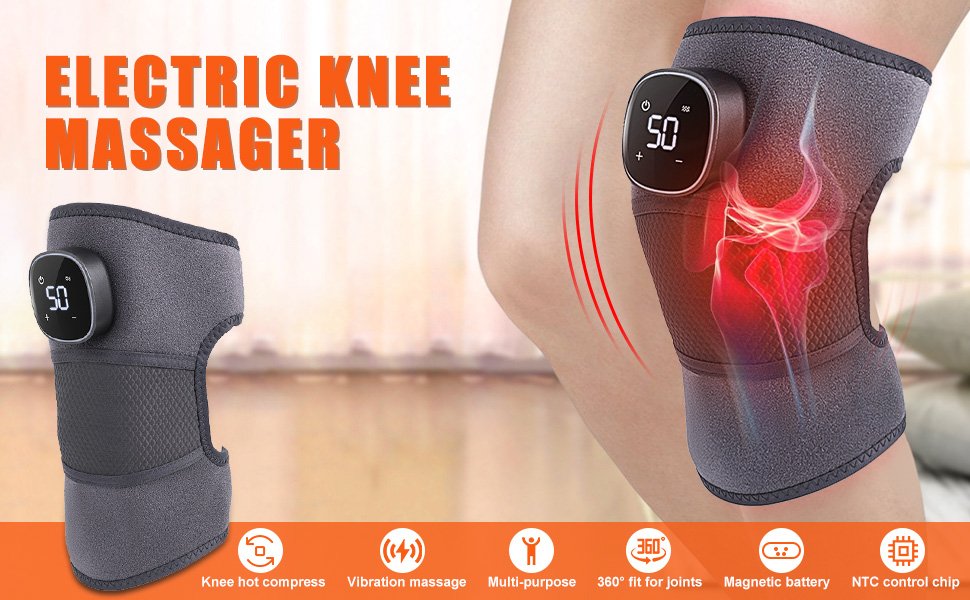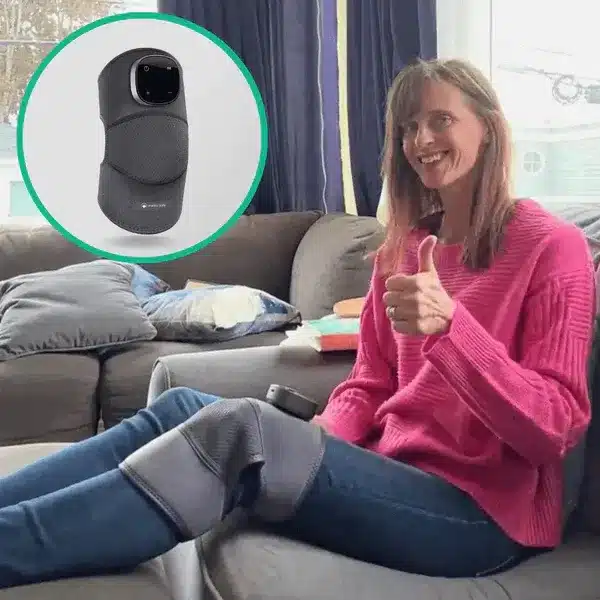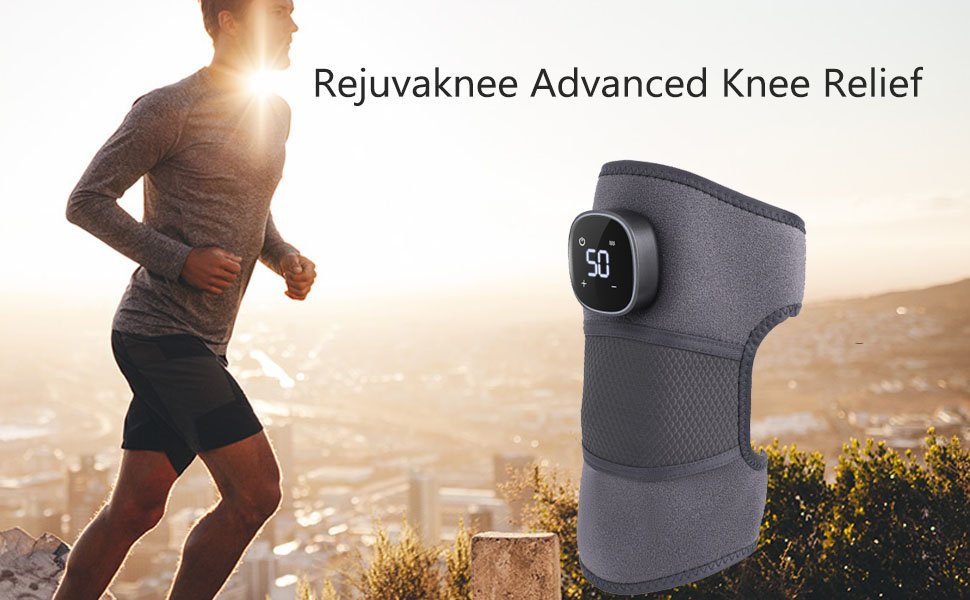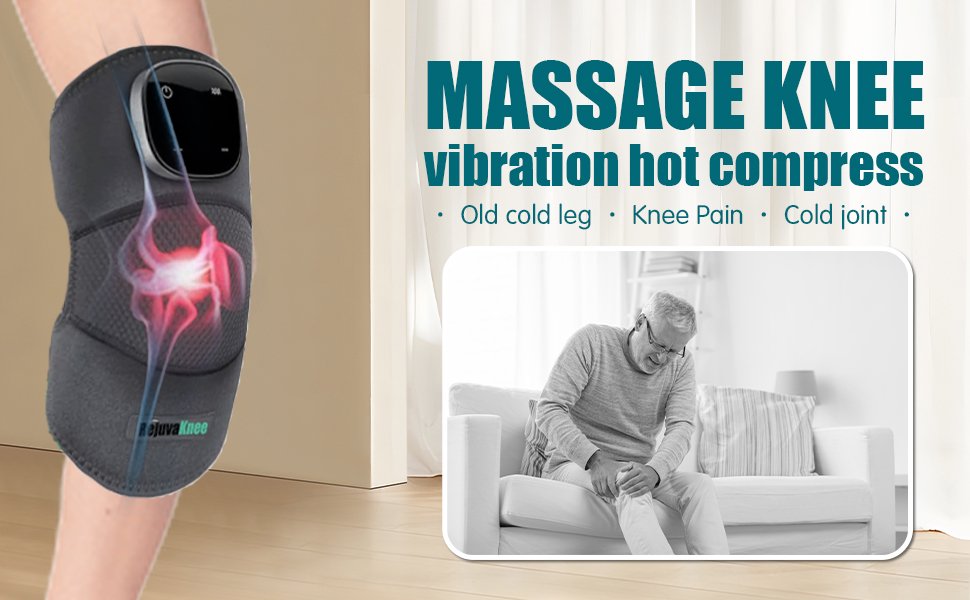Knee pain is a common issue affecting millions of people around the world. Whether caused by arthritis, injury, or the wear and tear of daily life, knee discomfort can seriously impact one’s quality of life. For individuals seeking alternatives to surgery, pain medication, or invasive treatments, RejuvaKnee has emerged as a non-surgical solution aimed at relieving knee pain and promoting long-term joint health. In this comprehensive RejuvaKnee review, we will explore how this therapy works, the science behind it, its potential benefits, and what real users have to say about their experiences.
What is RejuvaKnee?
RejuvaKnee is a specialized, non-surgical treatment designed to relieve knee pain by addressing the underlying causes of discomfort. The therapy focuses on restoring the natural function of the knee joint without the need for invasive surgery. Typically offered by clinics that specialize in regenerative medicine and non-surgical orthopedics, the RejuvaKnee treatment combines various therapies that are customized for each patient.
At its core, RejuvaKnee is intended for individuals suffering from osteoarthritis, chronic knee pain, or those who want to avoid knee replacement surgery. Unlike conventional treatments like steroid injections or physical therapy, RejuvaKnee takes a holistic approach, aiming to not only relieve pain but also regenerate damaged tissues and improve mobility.

How Does RejuvaKnee Work?
RejuvaKnee employs a combination of treatments that include:
- Regenerative Medicine (Stem Cell Therapy/PRP Therapy): At the heart of the RejuvaKnee program is regenerative medicine. The treatment often includes platelet-rich plasma (PRP) injections or stem cell therapy, both of which are designed to promote healing and tissue regeneration within the knee joint. PRP involves using the patient’s own blood to concentrate platelets, which are then injected into the knee to stimulate the body’s natural healing processes. Similarly, stem cell therapy harnesses the body’s ability to repair and regenerate tissues, which can significantly improve joint function.
- Hyaluronic Acid Injections: Hyaluronic acid is a substance naturally found in the body that acts as a lubricant for the joints. As part of the RejuvaKnee therapy, this acid is injected into the knee to provide additional cushioning and promote smoother movement of the joint, reducing pain and discomfort.
- Laser Therapy and Other Non-invasive Modalities: Clinics that offer RejuvaKnee often include non-invasive therapies such as cold laser treatment, which can help reduce inflammation, accelerate tissue healing, and relieve pain. Other modalities may include ultrasound therapy or electrical stimulation to further promote tissue repair and reduce swelling.
- Physical Rehabilitation: In addition to the regenerative treatments, RejuvaKnee often involves a personalized rehabilitation plan. The purpose is to strengthen the muscles surrounding the knee joint and enhance flexibility, helping to stabilize the joint and prevent further injury.
Who Can Benefit from RejuvaKnee?
RejuvaKnee is designed for individuals suffering from a wide range of knee issues. The most common candidates include:
- Osteoarthritis Patients: People suffering from osteoarthritis often experience chronic pain, swelling, and stiffness in the knee joint. RejuvaKnee can offer a less invasive alternative to surgery or steroid injections by targeting the underlying cause of the degeneration and promoting healing within the joint.
- Athletes and Active Individuals: RejuvaKnee is also popular among athletes and active individuals who suffer from knee injuries or chronic joint pain. The treatment helps repair damaged tissues and strengthen the joint, allowing for a quicker return to activity.
- Older Adults with Degenerative Joint Disease: As people age, the cartilage in the knee joint naturally begins to wear down. RejuvaKnee can help slow down this degeneration, reducing pain and improving mobility in older adults who may be considering knee replacement surgery.
The Science Behind RejuvaKnee: Is It Effective?
Regenerative Medicine and Knee Health

One of the cornerstones of RejuvaKnee is regenerative medicine. Both PRP therapy and stem cell treatments have been widely studied for their potential to heal damaged tissues, reduce inflammation, and improve joint health. While regenerative medicine is still considered a relatively new field, early clinical studies have shown promising results in the treatment of knee pain.
- Platelet-Rich Plasma (PRP) Therapy: A 2019 study published in the Journal of Orthopaedic Surgery and Research found that PRP injections can significantly reduce pain and improve knee function in patients with osteoarthritis. This is achieved through the growth factors and healing properties present in platelets, which help repair tissues and reduce inflammation.
- Stem Cell Therapy: Stem cell treatments have also gained attention in the medical community for their ability to regenerate cartilage and repair damage within the knee. A study from Stem Cells Translational Medicine highlighted that stem cell therapy can help restore lost cartilage and improve joint function, offering an alternative to invasive surgeries.
Hyaluronic Acid: Lubricating the Joint
Hyaluronic acid injections, another key component of RejuvaKnee, have been used for years to treat knee osteoarthritis. Clinical trials have shown that these injections can reduce pain and improve joint movement by providing additional cushioning and lubrication within the knee.
- A study published in The American Journal of Sports Medicine concluded that patients who received hyaluronic acid injections experienced significant improvements in pain reduction and mobility, with effects lasting up to six months.
Combining Therapies for Maximum Results
What makes RejuvaKnee unique is its multi-faceted approach. By combining regenerative treatments with rehabilitation and other therapies, patients often experience a synergistic effect, where the combined treatments provide greater relief than any single therapy could achieve on its own.
What Do Real Users Say? RejuvaKnee Reviews

RejuvaKnee reviews from actual patients offer valuable insights into the effectiveness of the treatment. Here’s what some patients have shared about their experiences:
Positive RejuvaKnee Reviews
- James W. (Age 55): “After years of suffering from osteoarthritis and trying every treatment imaginable, I was finally introduced to RejuvaKnee. Within just a few weeks of treatment, I noticed a significant reduction in pain and stiffness. Now, six months later, I’m back to doing the activities I love, pain-free.”
- Linda M. (Age 62): “I was hesitant about knee surgery, so I decided to try RejuvaKnee. The results have been nothing short of amazing. Not only did my pain diminish, but I also have better mobility and strength in my knee. I would recommend it to anyone looking for an alternative to surgery.”
- Michael B. (Athlete): “As someone who’s always been active, I was devastated by my knee injury. RejuvaKnee helped me get back on track faster than I expected. The combination of PRP and physical therapy made all the difference. I’m now back to running without any issues.”
Mixed RejuvaKnee Reviews
- Sarah K. (Age 47): “While RejuvaKnee did help reduce my pain, the improvement wasn’t as dramatic as I had hoped. I still have some stiffness in the mornings, but overall, I do feel better than I did before the treatment.”
- Tom H. (Age 60): “RejuvaKnee worked for me, but it took longer than I expected. After about two months, I started to notice significant improvements, but patience is definitely required.”
Critical RejuvaKnee Reviews
- John D. (Age 50): “Unfortunately, I didn’t see the results I was hoping for with RejuvaKnee. While the treatment was painless and the staff were great, my knee pain has only slightly improved. I’m considering other options at this point.”
Potential Side Effects of RejuvaKnee

As with any medical treatment, RejuvaKnee may come with potential side effects, though they are generally mild and rare. Some patients report temporary discomfort, swelling, or redness at the injection site, particularly with PRP or stem cell injections. In most cases, these side effects subside within a few days. It’s also worth noting that, while regenerative treatments are considered safe, they may not be effective for every individual, especially in cases of severe joint degeneration.
Cost of RejuvaKnee
The cost of RejuvaKnee varies depending on the clinic, the extent of the treatment required, and the number of sessions. On average, patients can expect to pay anywhere between $2,000 and $5,000 for a full course of treatment. Since RejuvaKnee is considered a non-surgical, elective procedure, it is typically not covered by insurance, so patients should be prepared to cover the cost out-of-pocket.
Conclusion: Is RejuvaKnee Right for You?
RejuvaKnee has garnered positive reviews from many patients who have experienced relief from chronic knee pain without the need for surgery. By using a combination of regenerative medicine, hyaluronic acid injections, laser therapy, and physical rehabilitation, the treatment offers a comprehensive, non-invasive alternative for individuals suffering from osteoarthritis and other knee conditions.



